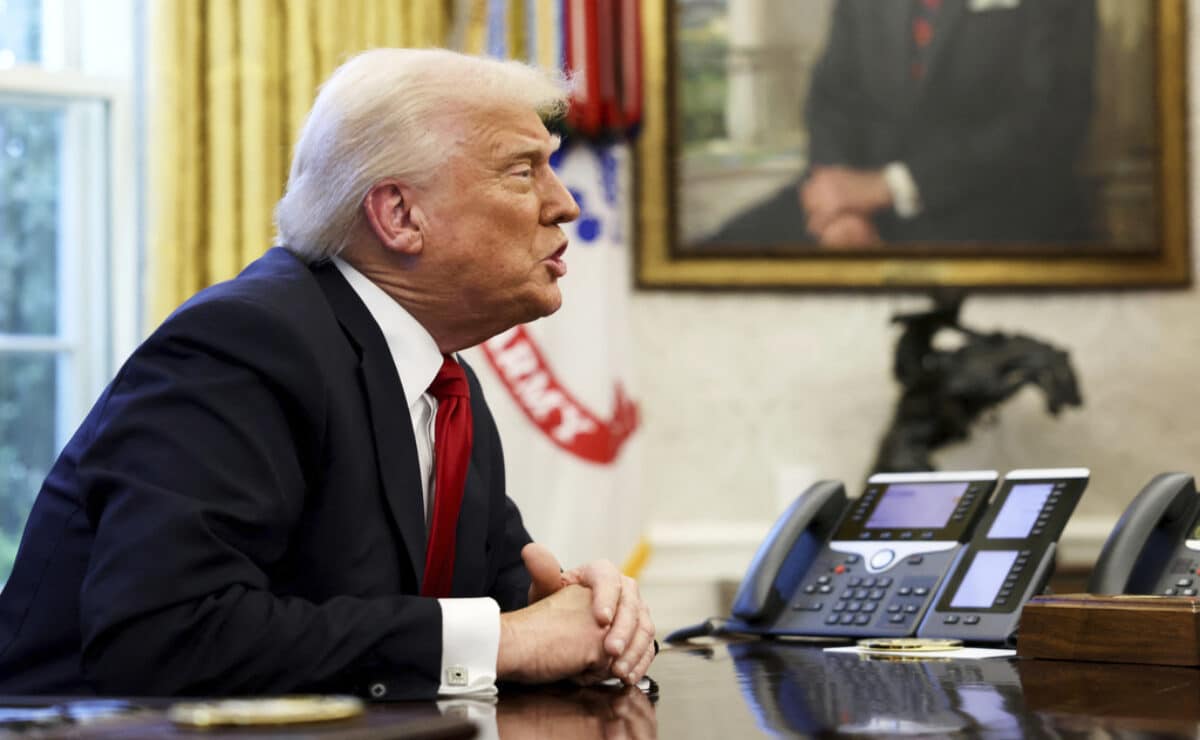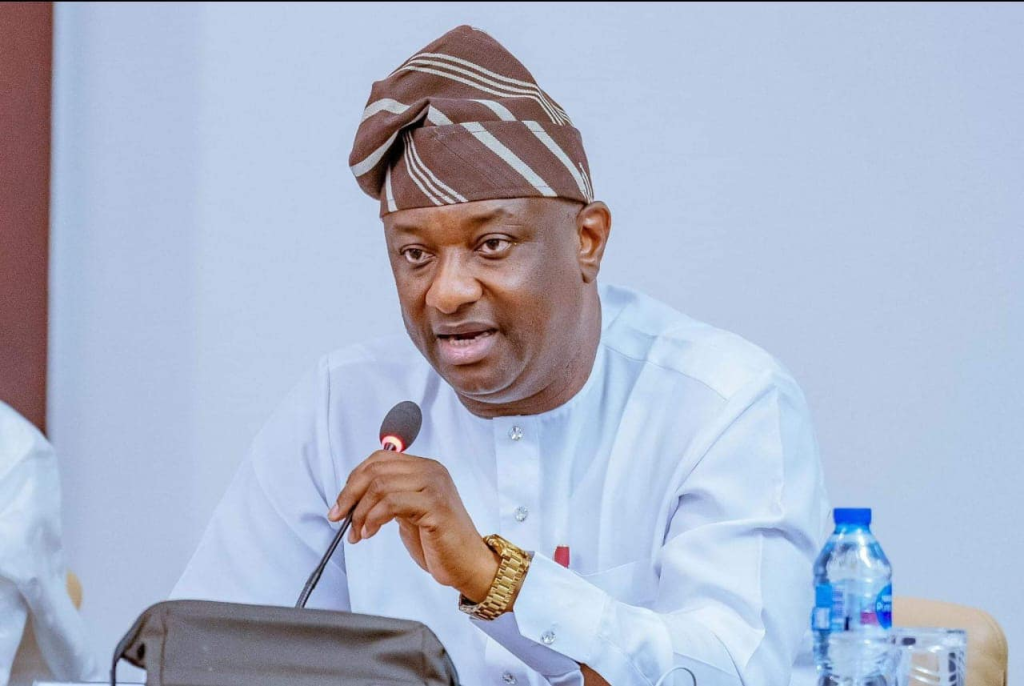Venezuelans trapped in Mexico, between Trump and Maduro: ‘We had the American dream. It didn’t happen’ Without passports and trapped by a sealed border, hundreds of Venezuelans seek repatriation at their embassy after being persecuted and kidnapped at the border As soon as Luisa’s family crossed the border into Tapachula, they were kidnapped. For a week, they were enslaved by criminals — cleaning bathrooms, sweeping floors, “all those things.
” The captors forced them to write home to Venezuela so relatives would send ransom money . “It wasn’t much, but they sent something,” Luisa recalls. The family left Puerto Cabello, in Venezuela’s Carabobo state, back in June, and crossed five countries — Panama, Costa Rica, Nicaragua, Honduras, and Guatemala — that Luisa rattles off.

But in Mexico, they hit a wall. On January 20, the day of his inauguration, President Donald Trump further sealed the southern border and shut down the asylum process in the U.S.
. their intended destination. “We were adrift, we had no money, nothing,” the 26-year-old recalls.
News from the U.S. wasn’t encouraging: Venezuelans being hunted down , deported, or locked up in high-security prisons alongside Salvadoran gang members.
And the country they found themselves stranded in hasn’t been much kinder. “The hardest part of the journey was the jungle and Mexico,” she says. That’s why they are here, at the gates of the Venezuelan Embassy in Mexico City, pleading for a “humanitarian flight” back to the country they once fled.
“Things didn’t go the way we wanted, but it’s getting out of hand now, and we really need that humanitarian aid from Nicolás Maduro,” she says. Like Luisa and her family, between 100 and 200 people gathered on Thursday outside the embassy in the affluent Polanco neighborhood. As she tells her story, a plane carrying 300 Venezuelans — many of whom had crowded these same gates the day before — lands back home.
Some were deported from the United States. Others never made it that far. Repatriation flights left from Mexico in February and March, as well as from the U.
S. Like Luisa, most of the Venezuelans outside the embassy don’t have passports and can’t leave without help from their government. The criteria for selection are unclear, and the wait is long.
In theory, families with children are prioritized — but Luisa’s family, traveling with five children (the oldest seven, the youngest just a year old), has been waiting three weeks. The guard at the gate tells them to be patient. He says the same to a group of five unaccompanied children who entered Mexico with an aunt who later vanished.
They are now surviving on the streets, relying on help from other Venezuelan families waiting at the embassy. So far, they haven’t been a priority for Venezuelan President Nicolás Maduro. Nor for the mayor of Mexico City, Clara Brugada, from the Morena party, who recently ordered the eviction of migrant camps — many housing Venezuelans — across the Mexican capital.
Nor for Mexican President Claudia Sheinbaum, despite her agreement with Maduro to coordinate repatriation efforts. They’re not the only children sleeping on the street in Polanco. But at least the others are with their parents.
These kids sleep on cardboard and eat what little they can find. Trump has projected onto Venezuelans all the ills — real or imagined — that plague the United States. And Mexico has followed his lead.
Meanwhile, Maduro, clinging to power even as longtime allies turn their backs amid allegations of electoral fraud, continues to confront the White House more with rhetoric than with action. Caught in between are the thousands of migrants who have fled Venezuela in recent years, driven out by economic collapse and political turmoil. Although everyone agrees: it’s better to return home than to remain in the dangerous no-man’s-land that Mexico has become for them.
Douglas Zapata’s right eye is clouded by a white haze. In 2017, while still living in Valencia, two hours from Caracas, he was assaulted. When he resisted, acid was thrown on his face.
One eye was completely blinded; he can still see a little through the other. No longer able to operate the crane that had fed his family for two decades, he left for Peru, where he spent five years painting houses. In 2024, he set out once more — this time for New York, where one of his daughters lives.
But shortly after entering Mexico, he too was kidnapped. He was traveling with his son and nine-months-pregnant daughter-in-law. The kidnappers took pity and let them go.
They reached Torreón, in northern Mexico. As soon as they stepped off the train, they headed straight to the hospital, where the baby was born in February 2024. They decided to stay put for a while to let the newborn rest.
Then Trump came along — and closed the border. “That was the dream, like everyone else here had, the American dream, but it didn’t happen, and well, here we are,” says Zapata. His son, daughter-in-law and grandson are going to try to make a life for themselves in Torreón.
But Zapata isn’t staying. “I really don’t want to stay because I don’t feel as at ease in this country. And, in fact, even if they reopen [the border with the United States], I want to return to my country.
My goal is to be with my family,” he says. Now he waits outside the Venezuelan Embassy in Mexico City, holding a folder with his documents and a message scrawled on the cover: “I’m disabled and have high blood pressure. No one will give me a job.
I’m alone. I want to return to my country.” He complains that despite his health condition, he hasn’t been prioritized for the next repatriation flight.
For now, he is sleeping in a cheap guesthouse near Zócalo square, paying 100 pesos ($5) a night. He knows things won’t be easy in Venezuela, but at this point, it can’t be worse than in Mexico. “It’s a bit complicated, but my family is surviving and working and making an effort, like everywhere else, you have to make an effort.
At least I have a lot of support from my family there, and that’s what I want,” he says. In mid-March, the United States deported more than 200 Venezuelans to a maximum-security prison in El Salvador — the same facility where President Nayib Bukele holds gang members and a number of innocent people in inhumane conditions. Without providing any evidence, Donald Trump accused the deportees of belonging to Tren de Aragua, a Venezuelan criminal organization.
Some were targeted simply because their tattoos resembled gang insignias . A judge temporarily suspended the deportations, but the White House decided to ignore the court ruling. A few days later, Trump’s Secretary of Homeland Security, Kristi Noem, strolled through the prison, photographed herself next to the overcrowded cells of shirtless inmates — their tattoos clearly visible — and warned migrants : “If you do not leave, we will hunt you down, arrest you, and you could end up in this El Salvadoran prison.
” A government official threatening to hunt down migrants has become part of the Trump administration’s daily script — a strategy that has successfully deterred many who once dreamed of reaching a country long seen as a land of opportunity. People like Diego Álvarez Andrés. “It’s impossible now,” he says.
“And if there were still an opportunity to enter, I wouldn’t want to, because it’s already very difficult to be there with the stress of being persecuted because we’re illegal. Now, because of a tattoo, they discriminate against you as being part of a criminal gang, so that’s not what we want anymore. I can’t say everyone is innocent, but they’ve taken many people who have nothing to do with any crime.
” Álvarez Andrés has been on the road for 25 years. He lived and worked in Peru for six years before arriving in Mexico seven months ago. He left Tapachula with a migrant caravan and had an asylum appointment in Matamoros on the border with Texas — scheduled for the day Trump took office.
Now, he gets by parking cars in Tepito. At least he has a job and can afford a room while he waits. María (a pseudonym to protect her identity) and her family have been sleeping outdoors in front of the Venezuelan Embassy for two weeks.
“We really prefer to go back. There’s a lot of discrimination here, kidnappings..
. The economy in Venezuela isn’t good, but despite everything, you can still do something,” she says. “Nothing beats being in a safe place.
There’s no way to get to the United States anymore. And walking to the border is too risky. Imagine, her situation [pointing to her friend].
She has two girls, my daughter is sitting over there. There are a lot of mothers. So, the safest place we can be is here, because if we go to a public square, they’ll grab us, kidnap us, anything.
At least here, in the embassy, we’re safe.” Sign up for our weekly newsletter to get more English-language news coverage from EL PAÍS USA Edition Tu suscripción se está usando en otro dispositivo ¿Quieres añadir otro usuario a tu suscripción? Si continúas leyendo en este dispositivo, no se podrá leer en el otro. ¿Por qué estás viendo esto? Tu suscripción se está usando en otro dispositivo y solo puedes acceder a EL PAÍS desde un dispositivo a la vez.
Si quieres compartir tu cuenta, cambia tu suscripción a la modalidad Premium, así podrás añadir otro usuario. Cada uno accederá con su propia cuenta de email, lo que os permitirá personalizar vuestra experiencia en EL PAÍS. ¿Tienes una suscripción de empresa? Accede aquí para contratar más cuentas.
En el caso de no saber quién está usando tu cuenta, te recomendamos cambiar tu contraseña aquí. Si decides continuar compartiendo tu cuenta, este mensaje se mostrará en tu dispositivo y en el de la otra persona que está usando tu cuenta de forma indefinida, afectando a tu experiencia de lectura. Puedes consultar aquí los términos y condiciones de la suscripción digital.
Donald Trump Mexico Venezuela Nicolás Maduro El Salvador Nayib Bukele Kristi Noem ‘Acting is the only thing I can do’: The glory, disappearance and comeback of Michael Fassbender A podcast created by people over 90 is a hit in Argentina The computer that runs on human neurons John Hartwig, chemist: ‘The situation for science in the United States is terrible, these are the steps of authoritarian regimes to take power’ Rise in smuggling of counterfeit whiskeys in southern Africa sparks health alert ‘Acting is the only thing I can do’: The glory, disappearance and comeback of Michael Fassbender John Hartwig, chemist: ‘The situation for science in the United States is terrible, these are the steps of authoritarian regimes to take power’ ‘Inhumane conditions’ and death at Miami’s Krome migrant detention center Twenty years of good-looking priests in Rome.
Top

Venezuelans trapped in Mexico, between Trump and Maduro: ‘We had the American dream. It didn’t happen’

Without passports and trapped by a sealed border, hundreds of Venezuelans seek repatriation at their embassy after being persecuted and kidnapped at the border











